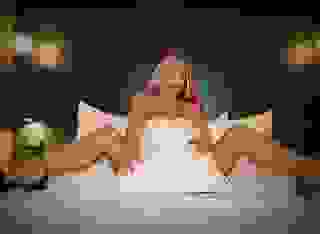- Audio
- 19 - Am I Too Lost To Be Saved?
Note: You can change font size, font face, and turn on dark mode by clicking the "A" icon tab in the Story Info Box.
You can temporarily switch back to a Classic Literotica® experience during our ongoing public Beta testing. Please consider leaving feedback on issues you experience or suggest improvements.
Click hereThis story contains characters over age 18
Chapter 19 Am I Too Lost To Be Saved?
What about eternity? Believe it or not, I was raised in a Christian church. Probably too strict of a church; the faith of the Christian sect my family belonged to was a fanatically conservative one. A weekly dose of hypocrisy, even within my own family, has led to a vague skepticism that any church has all the right answers, and therefore I am generally content to make my own informed decisions on what to believe and how to practice. I do believe in eternity, and I believe in being a good person, but I don't think being in church makes you a good person, any more than being in a garden makes you a sweet-smelling flower.
It was pointed out to me that of course church is full of hypocrites, because we are all sinners. I therefore could belong there, but I don't believe simply congregating with other sinners is the path to salvation. I know the material in my head, and I've never questioned it, but it doesn't mean anything to me. I feel like I don't know how to change my heart. What more can I learn at church? Listening to someone speak, it's all flowery prose to me. Scrape away the literary fluff, just like legalese when trying to read the law, but unlike the law, what you're left with is often sentences with no concept; the message doesn't make sense.
I've often felt that many of the things you learn at church, particularly lessons designed for children, coalesce into a sort of brainwashed thought pattern. If everything you learn comes through that religious filter, I believe you lose an element of free will. All your choices will be tainted by that knowledge. Some may call it a conscience, but the idea is lost on me. A conscience is an emotional response, of which I have a genuine few. Occasionally the memory of these early lessons causes me to wonder if what I'm doing is right for me, appropriate to others, or both.
It's not simply rebellion against the religious brainwashing I've undergone. I could decide one day to focus my energies into being a devout Christian and model wife, employing a "fake-it-til-you-make-it" tactic, but I believe I would always wear a mask, hating myself for doing it and resenting the world for forcing me to be someone I'm not. It isn't enough to change the outside in the hopes that the inside will change. I needed to find a way to be who I was and not feel guilty about it. In this, I could learn a lesson from Ellen DeGeneres and her amazingly positive attitude. She said, "No human being should live with a lie or a secret that they feel bad or shame about.... Being happy means accepting that you're going to feel sad," at least sometimes or for a short period of time. But I didn't feel shame about my secrets. I needed to accept that I couldn't change and still remain status quo; some bad things were going to happen during this period of searching for identity, but I believe things always work out. Everything happens for a reason.
Was I simply bound to suffer if I tried to go against who I was? Is that what life is about? The teachings of Buddhism say it is: To live is to suffer. I believe that's true — life sucks — but I can't simply accept that. Shouldn't we try to improve our lives by doing what makes us happy? I guess not when the potential cost is the happiness of someone we love. Nietzsche expanded on it, saying, "To survive is to find some meaning in the suffering." In my eternal search for knowledge, I suppose that was always my root goal. One of my favorite quotes is from Jacqueline Carey: "All knowledge is worth having," and this was an incredibly important piece to the puzzle that was my life.
The Buddhist faith teaches that desire and ignorance lie at the root of suffering. Obviously, desire was the cause of my suffering, craving pleasure as well as searching for what my life is missing. The Buddhist faith teaches that desire is a want that can never be satisfied. Maybe if I accepted that, I would be happier. Perhaps then, I should adopt the Noble Eightfold Path of Buddhism as a manner of therapy. The Eightfold Path is a method for learning how to end suffering by aligning your understanding, thoughts, speech, actions, livelihood, effort, mindfulness, and concentration. Accepting this and exercising it through meditation and concentration seemed to be a plausible approach for changing my behavior and insatiable desire without necessarily changing who I was. I certainly had the single-minded ability to focus on these concepts and apply them to my life, if I was ready to accept what it would mean for my life, ending the pursuit of pleasure in exchange for the simple joys of a meaningful life.
I've struggled to be good. Very simply, if I wanted to be good, I would have to align my moral compass, do some soul searching, and never allow myself to make a choice that doesn't align with those morals, regardless of whether I actually subscribed to these ideas. No longer would I be able to entertain the notion of the pleasure principle. I wouldn't be able to do certain things anymore just because they felt good. I would have to find other things that gave me pleasure and joy in my life.
But which morals do I choose? As M. E. Thomas says in her book, Confessions of a Sociopath, "Despite millennia of arguments among theologians and philosophers, no one can really agree on the contours and parameters of morality. From where I stand, it's hard to put such faith in something so wildly elastic and changing." I tend to agree. Despite being raised in a Christian household, I've never been able to commit to the same ideas that others seem to so readily accept. I feel compelled to ask, "Is it possible that these are not true for me?" I suppose the answer is yes, and I simply have to accept some of these, true or not, in order to compose my life. This is where the Buddhist Noble Eightfold Path would be helpful, despite the fact that it still seemed like just another method of brainwashing.
I also needed to consult someone in a Christian church. Fortunately, I had someone who was willing to listen with an open mind and wanted to help me understand the implications of my actions. I admit, I was afraid of what I would learn, but I wanted another opinion about what was written on the subject and accepted as law in the Christian faith.








